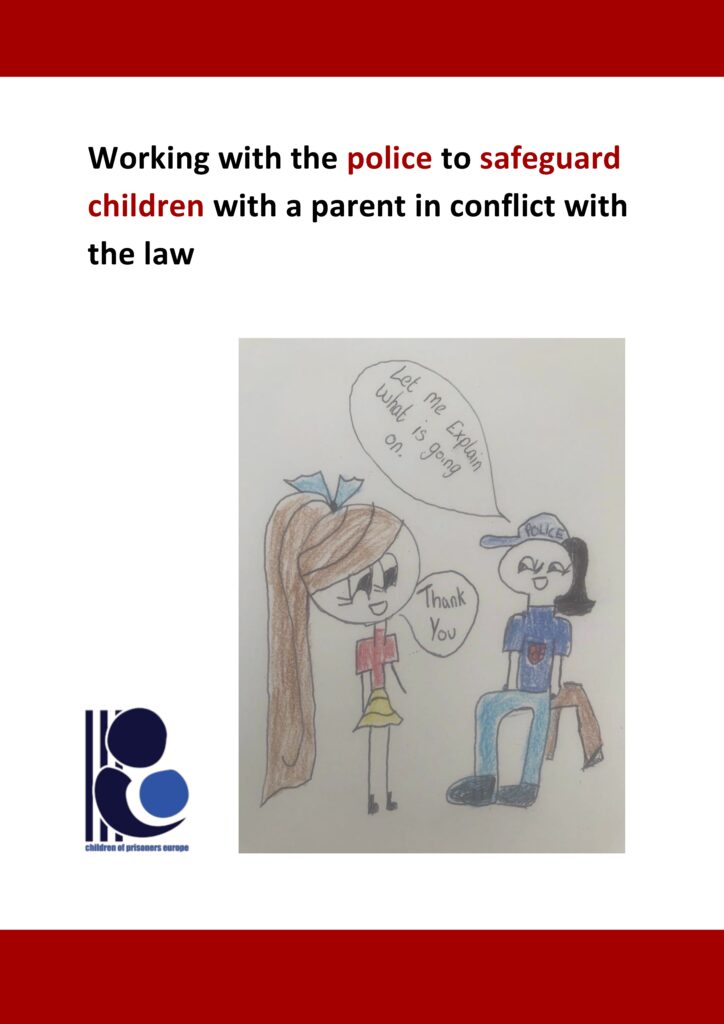For many children, the arrest of a parent will mark their first encounter with the police. Witnessing the arrest of a parent can be frightening, violent and traumatic for the child. This does not have to be the case, however. Police officers can take action before, during and after an arrest, search or warrant in order to reduce harm and stress children may experience. An effective approach to protecting children must be collaborative in nature.
This toolkit presents an overview of a general arrests procedure, with examples of context-specific considerations and guidance for keeping the best interests of children central when planning for an arrest. It is intended to assist practitioners across the sector when engaging with the police to safeguard children of parents in conflict with the law. It provides:
- An overview of the potential impact of a parent’s arrest on children;
- Recommended changes to policy and practice, following the example of existing initiatives;
- Guidelines on how to form and maintain lasting relationships with the police.
The toolkit includes a review of goals and guiding principles; ideas for how to best work with police; and a Question and Answer with Police Sergeant Russell Massie, Thames Valley Violence Reduction Unit in the UK. The Appendices include guidelines for how to explain a parent’s arrest to a child according to age group; a checklist for developing a cross-sectoral approach to the arrest; and a checklist for safeguarding children at the time of parental arrest.
Read the toolkit here.


